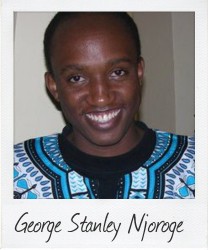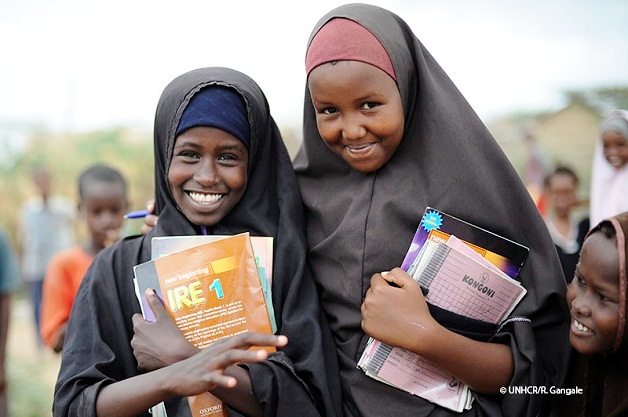“Strengthen student voices and invest in education”
November 27 Students’ voice in policy making is essential to strengthen investment and development in education, writes George Stanley Njoroge, 28, a Correspondent, from Nairobi in Kenya.
Students’ voice in policy making is essential to strengthen investment and development in education, writes George Stanley Njoroge, 28, a Correspondent, from Nairobi in Kenya.
17th November marks the International Students Day. As the 24th Commonwealth Heads of Government Meeting (CHOGM) came to an end on the same day in Colombo, Sri Lanka, there remains a need for deeper investment in education and for student voices to be taken seriously by political leaders and policy formulators.
Those under 30 make up 60 per cent of the Commonwealth’s population, and a significant number of those young people are students. Students are major stakeholders in not only the education sector but also all sectors of government that directly affect their present well-being and future.
For far too long, students have not been meaningfully engaged in the development and implementation of policies that affect them. This is contrary to Article 12 of the Convention on the Rights of the Child, which makes provision for young people to be included in decision making processes. It is time for change.
The Commonwealth Secretariat recently released a Youth Development Index which has shown massive disparity in youth chances across the Commonwealth. As stated in the YDI’s report, “the YDI is a useful tool for us to compare our government’s investments in youth with outcomes attained.” One of the metrics used in measuring progress was education. It was noted that nations with high youthful populations had not adequately invested in education for their youth.
Noting that the situation differs from nation to nation according to their economic progress and democratic space, in many Commonwealth nations where student bodies have been instrumental in political change, such as Kenya in the 70s and 80’s, the development of national student bodies has been stifled. Where established, they are not adequately financially supported, limiting their operation. This is not the case with the United Kingdom, where the National Union of Students has for decades been able to able to influence education policy development.
Weak national organizations leave Kenya’s constituent university student bodies singing out of sync with each other and policy makers unwilling to dance to their tune. This affects the education sector as a whole in national economic planning. Noting that the best advocates for education’s development are students, in many nations the loss of a student voice has resulted in stagnating investment in education. There is need for a more concerted effort to strengthening such bodies.
On this year’s International Students’ Day, countries with higher youthful population are encouraged to deepen their investment in education.
………………………………………………………………………………………………………………
About me:
Keenly interested in governance, youth empowerment and leadership development, I believe I have an international and inter-generational mandate to do my part in “healing the world and making it a better place” for current and future generations.
With a degree in Communications and African Literature, I am pursuing CPA qualifications, serve as a Research Officer at the Kenya National Commission for UNESCO, and Chair the Steering Committee of the Commonwealth Students’ Association. My hobbies include reading, travelling, dancing and singing.
………………………………………………………………………………………………………………
Opinions expressed in this article are those of the author and do not necessarily represent the views of the Commonwealth Youth Programme. Articles are published in a spirit of dialogue, respect and understanding. If you disagree, why not submit a response?
To learn more about becoming a Commonwealth Correspondent please visit:
http://www.yourcommonwealth.org/submit-articles/commonwealthcorrespondents/
………………………………………………………………………………………………………………




